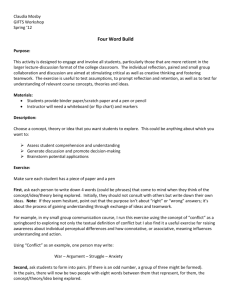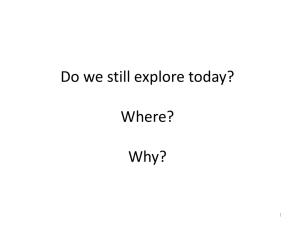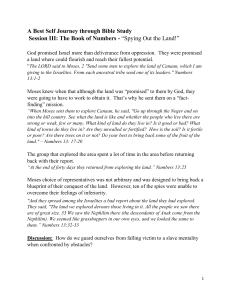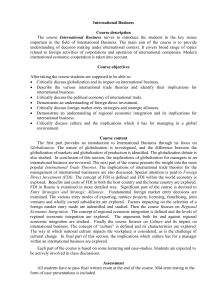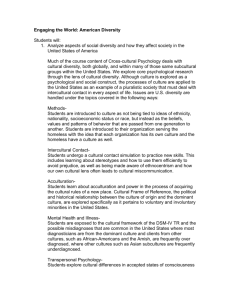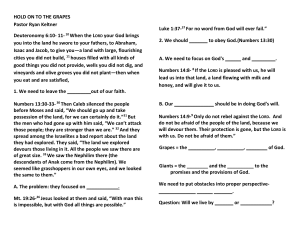NHD Topics - LdV Middle School
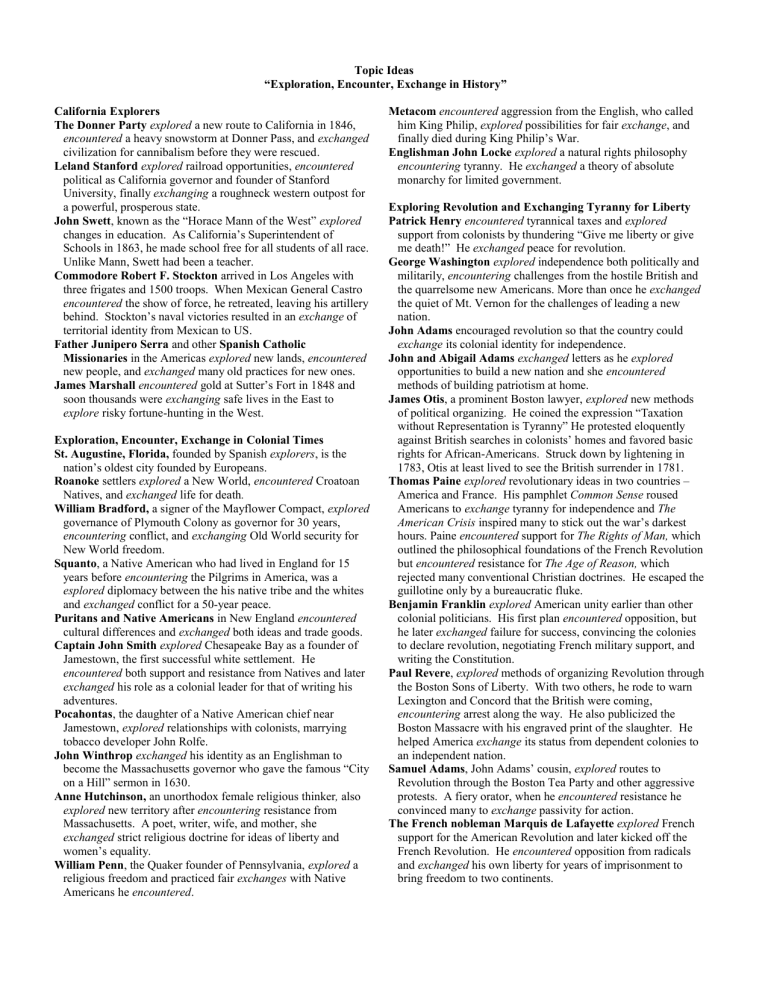
Topic Ideas
“Exploration, Encounter, Exchange in History”
California Explorers
The Donner Party explored a new route to California in 1846,
Metacom encountered aggression from the English, who called him King Philip, explored possibilities for fair exchange , and encountered
John Swett changes a heavy snowstorm at Donner Pass, and a powerful, prosperous state. exchanged civilization for cannibalism before they were rescued.
Leland Stanford explored railroad opportunities, encountered political as California governor and founder of Stanford
University, finally exchanging a roughneck western outpost for
, known as the “Horace Mann of the West” in education. As California’s Superintendent of
Schools in 1863, he made school free for all students of all race.
Unlike Mann, Swett had been a teacher. explored finally died during King Philip’s War.
Englishman John Locke explored a natural rights philosophy encountering tyranny. He exchanged a theory of absolute monarchy for limited government.
Exploring Revolution and Exchanging Tyranny for Liberty
Patrick Henry encountered tyrannical taxes and explored support from colonists by thundering “Give me liberty or give me death!” He exchanged peace for revolution.
George Washington explored independence both politically and
Commodore Robert F. Stockton arrived in Los Angeles with three frigates and 1500 troops. When Mexican General Castro encountered the show of force, he retreated, leaving his artillery behind. Stockton’s naval victories resulted in an exchange of territorial identity from Mexican to US.
Father Junipero Serra and other Spanish Catholic
Missionaries in the Americas explored new lands, encountered new people, and exchanged many old practices for new ones.
James Marshall encountered gold at Sutter’s Fort in 1848 and soon thousands were exchanging safe lives in the East to militarily,
James Otis encountering challenges from the hostile British and the quarrelsome new Americans. More than once he methods of building patriotism at home.
, a prominent Boston lawyer, exchanged the quiet of Mt. Vernon for the challenges of leading a new nation.
John Adams encouraged revolution so that the country could exchange its colonial identity for independence.
John and Abigail Adams exchanged letters as he explored opportunities to build a new nation and she encountered explored new methods explore risky fortune-hunting in the West.
Exploration, Encounter, Exchange in Colonial Times
St. Augustine, Florida, founded by Spanish explorers , is the nation’s oldest city founded by Europeans.
Roanoke settlers explored a New World, encountered Croatoan
Natives, and exchanged life for death .
William Bradford, a signer of the Mayflower Compact, explored governance of Plymouth Colony as governor for 30 years, encountering conflict, and exchanging Old World security for
New World freedom.
Squanto , a Native American who had lived in England for 15 years before encountering the Pilgrims in America, was a esplored diplomacy between the his native tribe and the whites and exchanged conflict for a 50-year peace.
Puritans and Native Americans in New England encountered cultural differences and exchanged both ideas and trade goods.
Captain John Smith explored Chesapeake Bay as a founder of
Jamestown, the first successful white settlement. He encountered both support and resistance from Natives and later exchanged his role as a colonial leader for that of writing his adventures.
Pocahontas , the daughter of a Native American chief near
Jamestown, explored relationships with colonists, marrying tobacco developer John Rolfe.
John Winthrop exchanged his identity as an Englishman to become the Massachusetts governor who gave the famous “City on a Hill” sermon in 1630.
Anne Hutchinson, an unorthodox female religious thinker , also explored new territory after encountering resistance from
Massachusetts. A poet, writer, wife, and mother, she exchanged strict religious doctrine for ideas of liberty and women’s equality.
William Penn , the Quaker founder of Pennsylvania, explored a religious freedom and practiced fair exchanges with Native
Americans he encountered . of political organizing. He coined the expression “Taxation without Representation is Tyranny” He protested eloquently against British searches in colonists’ homes and favored basic rights for African-Americans. Struck down by lightening in
1783, Otis at least lived to see the British surrender in 1781.
Thomas Paine explored revolutionary ideas in two countries –
America and France. His pamphlet Common Sense roused
Americans to exchange tyranny for independence and The
American Crisis inspired many to stick out the war’s darkest hours. Paine encountered support for convinced many to exchange passivity for action.
The French nobleman Marquis de Lafayette explored French support for the American Revolution and later kicked off the
French Revolution. He encountered opposition from radicals and exchanged his own liberty for years of imprisonment to bring freedom to two continents.
The Rights of Man, which outlined the philosophical foundations of the French Revolution but encountered resistance for The Age of Reason, which rejected many conventional Christian doctrines. He escaped the guillotine only by a bureaucratic fluke.
Benjamin Franklin explored American unity earlier than other colonial politicians. His first plan encountered opposition, but he later exchanged failure for success, convincing the colonies to declare revolution, negotiating French military support, and writing the Constitution.
Paul Revere , explored methods of organizing Revolution through the Boston Sons of Liberty. With two others, he rode to warn
Lexington and Concord that the British were coming, encountering arrest along the way. He also publicized the
Boston Massacre with his engraved print of the slaughter. He helped America exchange its status from dependent colonies to an independent nation.
Samuel Adams
, John Adams’ cousin, explored routes to
Revolution through the Boston Tea Party and other aggressive protests. A fiery orator, when he encountered resistance he
Francis Marion
, “the Swamp Fox,” encountered British troops during guerrilla raids in the South. His explored new methods of defeating a more powerful enemy and helped exchanged tyranny for liberty.
Exchanging A Weak Confederation for a Strong Constitution
Daniel Shays encountered unacceptable state tax policies and exchanged loyalty for rebellion. As a result, the nation explored possibilities for stronger government, writing the
Constitution.
After the Revolution, Elizabeth Freeman explored legal routes to freedom by suing in a Massachusetts. Many other blacks then exchanged slavery for freedom in New England.
James Madison , primary author of the Constitution, explored many political strategies to create a strong federal government with protection for individual rights. Encountering some opposition, he exchanged ideas through compromise. He also served as the fourth president.
John Jay explored avenues for peace with Britain after the war, encountered opposition after negotiating Jay’s Treaty, and helped exchange weak for strong government by co-authoring the Federalist Papers with Hamilton and Madison.
George Mason exchanged a too-powerful federal government for a balance of individual protections by demanding the Bill of
Rights. Having written the Virginia Declaration of Rights in
1776, he believed that explicitly stating individual rights provided important legal protection.
Thomas Jefferson
, the nation’s third president, explored a vision of freedom now shared by all Americans. He wrote the
Declaration of Independence and the Virginia statute of religious freedom. He founded the University of Virginia.
Encountering the contradictions of slavery, though, he did not exchange their bondage for liberty.
Alexander Hamilton explored the potential of a new nation both militarily and politically. He served in the Revolution and later helped to frame the Constitution, exchanged economic recession for prosperity as the first Secretary of the Treasury.
Encountering opposition, he lost his life in a duel.
John Marshall, Chief Justice from 1801-1835, exchanged a weak judicial branch for a strong Supreme Court with the full power of judicial review.
Encountering Opposition in the Early 1800’s
Andrew Jackson explored military methods of strengthening the nation both in the War of 1812, when he defeated the British at the Battle of New Orleans and in the Seminole War, when he seized Florida from the Spanish. Exchanging military for political power, as president he encountered and overcame opposition from both Congress and the Supreme Court.
James Monroe explored American regional power with the
Monroe Doctrine, a firm policy against European involvement in North and South America.
African-Americans Exchange Bondage for Citizenship
Stono Rebellion leader Jemmy “Cato”, a literate African, exchanged submission for revolt. Whites encountered a flurry of similar rebellions and explored new restrictions on slave activities and owner’s treatment of workers.
Nat Turner, encountering white cruelty and inspired by a religious vision, exchanged life for death after leading a slave uprising. Afterward, some whites explored increased activism against slavery, becoming abolitionists, and others further restricted black activity.
Sojourner Truth explored more equal roles for blacks and women. Encountering skepticism, she gave her famous “Ain’t I
A Woman?” speech.
Frederick Douglass , a former slave and a famous abolitionist, explored a variety of political routes to abolish slavery. He traveled widely in the US and in Great Britain, where he encountered respect and equality. After the Civil War, he exchanged his role as an agitator for a government appointment.
Harriet Tubman
, often called “Moses,” explored many paths to safety on the Underground Railroad, helping more than 300 people exchange slavery for freedom. She guided federal troops during the Civil War, encountering dangerous
Confederates and slaves needing freedom.
William Still , a free African American, encountered and assisted many fugitives through the Pennsylvania Anti-Slavery Society.
He exchanged assistance, money, and food in return for the stories of each person freed. His book, “The Underground
Railroad Records” explores the many avenues people followed to freedom.
Dred Scott , a slave, explored a legal route to freedom: he sued in court and lost. His encounter forced the court to put in writing what many believed but would not say aloud: black people could never be citizens. Many whites then exchanged their passive positions for political activism, hastening the Civil War.
Robert Smalls, an enslaved river pilot, stole a Confederate ship and exchanged his role as a slave for service in the Union military. He later served in both the South Carolina State
Assembly and the US Congress..
Robert B. Elliott explored new roles for African-Americans after the Civil War, serving as South Carolina’s Attorney General and a member of Congress. After whites regained power in
1877, he encountered resistance and exchanged his public roles for private life.
Susie King Taylor explored service as a Civil War nurse and laundress in the nation’s first African American regiment. She also encountered opportunities to teach soldiers to read and published her own memories before her death.
Ida B. Wells , an African-American journalist, encountered terrorism by the KKK and exchanged fear for courageous efforts to stop it.
Booker T. Washington , an African American, explored educational opportunities for blacks by founding the Tuskegee
Institute. He encountered opposition from those who believed that job skills were not enough, that the country should exchange segregation for equality.
W.E. B. Dubois explored legal action as a way to overcome segregation and the racism many encountered.
He founded the
NAACP, which is still active in civil rights law, exchanging oppression for equality.
Encountering Conflict Between North and South
Henry Clay encountered conflict over slavery and explored solutions through compromise, writing both the Missouri
Compromise, which postponed the Civil War by 40 years, and the Compromise of 1850. After his death, the nation exchanged peace for war.
Daniel Webster , a Massachusetts senator, explored many ways to hold the Union together, encountering much praise for his
“Liberty and Union” speech when South Carolina opposed a tariff, but exchanging support for criticism when he voted for the Compromise of 1850 and the Fugitive Slave Act.
Harriet Beecher Stowe galvanized the nation to take action against slavery with her novel
Uncle Tom’s Cabin.
Many readers exchanged passive sympathy for political action.
John Brown, a white abolitionist, explored radical opposition to slavery. Encountering pro-slavery opponents in Kansas, he killed them. Believing that slaves should rise up and fight, he organized an attack on the U.S. arsenal at Harper’s Ferry and exchanged his own life to publicize his cause. A few months later, Civil War broke out.
The Grimke sisters began as abolitionists but realized that women needed more rights in order to be effective politically.
They became early explorers in both movements, encountering fierce resistance when they spoke publicly. They exchanged is subservience for freedom among women and blacks.
William Lloyd Garrison explored new territory in journalism with his abolitionist paper, The Liberator . Encountering a promising young former slave, he launched the career of
Frederick Douglass, who exchanged his private life for a public career.
Stephen Douglas encountered Lincoln as an opponent. He debated Lincoln at least seven times, winning re-election to the
Senate in 1858 but losing in the presidential race of 1860.
Douglas carefully articulated pro-slavery arguments that pushed
Lincoln to develop his anti-slavery policies.
Exploring the Civil War
Abraham Lincoln explored political alternatives before joining the Republican Party, encountered a divided President during the Civil War, and exchanged his life in order to emancipate the slaves. He left a nation both united and free..
Edwin Stanton, Lincoln’s Secretary of War, encountered a bureaucratic mess and exchanged it for administrative efficiency. He explored new military technologies and successfully implemented black military service.
William Henry Seward explored abolitionist efforts in the
Senate, as governor of New York, and as Lincoln’s Secretary of
State. He also purchased Alaska.
Thaddeus Stevens , Pennsylvania congressman, explored methods of abolishing slavery, encountered resistance from those who would compromise to avoid war, and finally, exchanged black slavery for citizenship with 13 th and 14 th .
Ulysses S. Grant exchanged anonymity for fame with his successful Civil War campaigns as he explored a simple philosophy of war: “Find out where your enemy is; get there as quick as you can; hit him as hard as you can; and keep moving on.” After the war, as president, he encountered resistance from the KKK, which he was able to overcome, and from political corruption, which defeated him.
Jefferson Davis explored leadership of a rebel nation, the
Confederate States of America. He encountered a fight from the north and exchanged success for failure.
Robert E. Lee exchanged his service to the US for the
Confederate forces. Encountering enemy forces that outnumbered him, Lee explored ingenious military strategies, extending, but not winning the war. Seized by the north, his plantation became Arlington National Cemetery.
Union General William Tecumseh Sherman encountered a highly resistant Southern civilian population and explored the theory of “total war” when he demoralized the South with his highly destructive March to the Sea. He exchanged defeat for victory.
Clara Barton explored new roles for women by nursing directly on the battlefield, where she encountered many dangers. She later exchanged her role as a nurse for administration, when she founded the Red Cross.
Encounters Between Whites and Native Americans
When Europeans first explored the New World, their encounters with native people resulted in an exchange of diseases.
The Ojibwe , Great Lakes Indians, exchanged furs for trade goods from 1600's to almost 1900, eventually losing their land to the lumber and copper industries.
The Comanche regularly attacked Spanish missionaries, explorers, and later Mexican and Texan ranchers. Encounters sometimes led to peaceful exchange, but often to kidnapping and violence.
Tecumseh, a Shawnee chief, explored political methods of uniting and protecting Native American land claims.
Encountering his tribe when Tecumseh was away on a diplomatic mission, US troops defeated them. Tecumseh exchanged life for death at the Battle of the Thames in 1813.
John Ross was an educated Cherokee who explored legal methods to secure Cherokee rights to their land. He lobbied in
Washington, where he encountered opposition, litigated in the
Supreme Court, and, finally exchanging hope for resignation, walked the Trail of Tears with his people. He served as chief in
Indian Territory, always attempting peaceful negotiation in the face of tragic betrayal by the national government.
The Indian Removal Act of 1830 forced Native Americans to exchange their lands for unknown territory west of the
Mississippi River.
Crazy Horse and Sitting Bull successfully opposed Custer when they encountered him in battle. After temporary successes, they exchanged victory for defeat and lost their land.
The Apache lost their native lands with the surrender of
Geronimo in 1886.
Chief Joseph of the Nez Perce (1840 -1904) exchanged his determination to defend his people for a vision of peace, saying
“I will fight no more forever.”
Exploring the West
Daniel Boone explored The Wilderness Road, leading pioneers into Kentucky. He liked and respected the Indians but encounters were not always peaceful; he lost members of his own family to Indian attack. During the Revolution, Boone exchanged his role as a frontiersman for that of a soldier.
After the Louisiana Purchase, Merriwether Lewis and William
Clark explored the new territory, encountered both native people and natural wonders, and began exchanges that changed the West forever.
Sacagawea explored with Lewis & Clark, carrying a baby on her back.
After the expedition, William Clark had a successful career as governor of Missouri and an Indian negotiator.
Jedediah Smith was the first to travel overland to California, exploring the South Pass.
In 1841, the first wagons on the Oregon Trail explored a route to
California. Pioneers encountered unknown dangers and exchanged a settled life in the East for new opportunities in the
West.
John C. Fremont explored a route to California with Kit Carson in 1843, encountering Native Americans resistance and ultimately, in 1846, exchanging territory from Mexico to the
US.
John O'Sullivan coined the phrase “Manifest Destiny” in an
1845 newspaper article, encouraging people to explore the
West, encounter new opportunities, and ultimately exchange peace for the Mexican War to gain new territory.
The 1862 Homestead Act encouraged thousands of Americans to exchange a settled life in the East for an opportunity to own land in the West, exploring new regions and encountering unknown dangers.
Encountering New Spain: Manifest Destiny and the Treaty of
Guadalupe Hidalgo.
When Brigham Young explored the West, he encountered both challenge and opportunity, leading to an exchange of an identity of outcasts for a new civilization.
Sam Houston encountered the Mexican Army during the fight for Texan independence and explored politics as its president and a representative in Congress. He was critical in Texas exchanging its identity from Mexican to US.
Exploring a New Country: Immigration
Ellis Island was the entry point for millions of immigrants exploring a new life in America from 1892 until the 1950’s.
Angel Island was an entry point for Asians from 1892 until at least the 1930’s.
Irish immigrants escaping a potato famine in the 1840’s explored opportunities, encountered prejudice, and exchanged a largely rural life for big-city industry.
German immigrants fleeing a failed revolution in 1848 likewise explored opportunities. Their presence was so important that
Lincoln purchased a German-language newspaper to help his political campaign.
The Chinese Exclusion Act of 1880 limited the number of
Asians who could explore America, encounter a new way of life, and create cultural exchanges.
Exploring Social Change
Exploring new duties for a new nation after the Revolution,
Democratic-Republicans encountered a new role for women:
Republican Motherhood .
Lucretia Mott explored opportunities for women’s rights. She encountered opposition but exchanged silence for political participation.
Margaret Fuller explored new ideas about transcendentalism and women’s roles. A newspaper correspondent and a spokesperson for women’s education, she died in a shipwreck in New York Harbor.
Dorothea Dix explored new treatment for the mentally ill and encountered little opposition from the Massachusetts State
Assembly with her proposals. During the Civil War, she exchanged her role of a reformer to head of the nursing staff.
Elizabeth Cady Stanton and Susan B. Anthony explored many paths toward women’s rights, encountered resistance from both men and women, and exchanged very limited women’s roles for expanded opportunities.
Carrie Chapman Cat, Alice Paul and Lucy Burns successfully explored new methods of political pressure to obtain women’s right to vote. They encountered opposition, but were willing to exchange imprisonment for a final victory with the 19 th
Amendment.
Reynolds v. United States: George Reynolds encountered a conflict between his belief in polygamy and US law. The
Supreme Court explored the relationship between religious liberty and marriage before ruling against polygamy.
Horace Mann explored new methods for education to reform society on the first Board of Education of Massachusetts. He called public education “the great equalizer.”
Upton Sinclair encountered an irresponsible big meat-packing industry and explored its disgusting conditions in his novel The
Jungle. As a result, The Food and Drug Act exchanged dangerous businesses for a safe, government regulated food supply.
Big Business Encounters Labor Reformers and Progressives
Teddy Roosevelt’s explored a wider role for government: he employed “gunboat diplomacy” to intimidate other nations into compliance; he signed the first national parks legislation; he regulated big business after encountering abuses. His presidency exchanged conservative for progressive policies, creating a stronger national government.
John Muir explored the disappearing natural world, encountering inspiration, introducing Teddy Roosevelt to
Yosemite, and promoting policies that exchanged an exploitative national policy for one that sometimes attempted to preserve the environment.
Cornelius Vanderbilt explored competitive practices in both steamboat shipping and railroads. He would slash prices so his opponents would go broke, and then he would gobble up their businesses.
Financial Tycoon J.P. Morgan encountered political as well as business challenges when the country faced a financial crisis in
1893. His personal credit backed several banks and even the
US government until the crisis passed. He exchanged national financial stability for public fear of tycoons.
John D. Rockefeller explored opportunities in oil, encountering and defeating competition. His unbridled success inspired antitrust legislation as the nation exchanged a philosophy of unlimited capitalism for one of regulation.
Ida Tarbell explored the methods of Standard Oil (Rockefeller’s company). Encountering questionable business practices, she exchanged traditional writing for something new: investigative journalism. Her work resulted in the break-up of Standard Oil and additional anti-trust legislation.
Eugene Debs explored Socialist Party ideas and contrasted them with capitalist US practices. Encountering injustice, he said capitalism was unfair; it was like a race between a railroad and a man pushing a wheelbarrow. He exchanged his work for labor unions to promote the Progressive and later the Socialist political parties, gaining some rights for labor.
Mother Jones explored opportunities for workers and agitated for social services. A fiery speaker, she often encountered trouble with the law but sometimes exchanged injustice for better conditions for workers.
Lewis Hine explored the world of child labor through photography, encountering many dangerous conditions. His publications launched a political movement to exchange child labor for education.
Jacob Riis, a photographer, explored urban poverty in his book
How The Other Half Lives.
His efforts improved housing for poor immigrants in New York City a century ago.
Florence Kelley encountered injustices for American workers.
Due to her efforts, many exchanged a 12-hour for an 8-hour workday. Although white, she was a founding member of the
National Association for the Advancement of Colored People
(NAACP).
Samuel Gompers explored many possibilities for improving conditions for American workers, finally founding the
American Federation of Labor. His efforts allowed many to exchange very low wages for the power of collective bargaining.
Thomas Nast , the cartoonist, explored the corrupt practices of
Boss Tweed and other New York City politicians.
Encountering a culture of deal-making that sometimes helped ordinary people and sometimes did not, he exchanged secrecy for publicity, resulting in some public improvements.
Exploring Foreign Affairs
President Woodrow Wilson explored an expanded role for the
United States in world affairs, encouraging the nation to exchange isolationism for engagement. Encountering complex challenges after World War One, he proposed the League of
Nations and drafted His the Twelve Points for effective foreign involvement.
Europeans Who Explored America
Alexis de Tocqueville traveled from France to America to study prisons. He explored for more than a year and published
“Democracy in America,” describing his encounters with equality.
Charles Dickens, the famous British writer, explored America twice (1842 and 1867), encountering many differences.
Poverty disappointed him on his first visit, but in 1867 he exchanged his criticism for praise.
Exploring New Technology
Gibbons v. Ogden, an 1824 Supreme Court case, explored the
Constitution’s commerce clause and determined that states could not limit steamboat traffic. Businesses exchanged cronyism for competition.
Robert Fulton explored new technologies for the steamboat.
Farmers encountered new opportunities to farm farther west, since they could more easily ship products to eastern markets.
The Erie Canal allowed many more people to explore opportunities in the Great Lakes region, encounter new people and places, and exchange labor and products.
The New York Stock Exchange : Money as Power.
Samuel Slater and Francis Cabot Lowell exchanged life in
Britain to start factories and mills in New England. They explored new ways to organize workers and encountered early support and later resistance to industrial life.
Mill Girls explored life in factory towns.
Eli Whitney explored efficient manufacturing with interchangeable parts. Encountering very slow cotton harvesting methods, he invented the cotton gin, making cotton more profitable, encouraging more westward movement and increasing slave labor.
Samuel Morse invented the telegraph, the first long-distance electronic communication system, allowing Americans to exchange messages from coast to coast by 1861.
The Transcontinental Railroad, completed in 1869, allowed large numbers of people to explore the West, encounter opportunities for business, and exchange their farm goods for products they needed.
Thomas Edison explored scientific innovation, encountering electrical principles that allowed exchange of darkness for light.
Nikola Tesla explored electricity, encountering the patterns of alternating and direct current, eventually exchanging work for
Edison with vigorous competition.
Alexander Graham Bell explored the world of sound to help the deaf and encountered the principles of the telephone.
Andrew Carnegie , explored the Bessemer process for making steel, becoming extremely wealthy. He encountered resistance to his harsh policies from labor unions; he called in troops and shot striking workers. He also exchanged some of his wealth for build libraries across the U.S.
Henry Ford explored new mass production techniques, exchanging individual craftsmanship for the assembly line.
Encountering a labor shortage, he raised wages, creating a wellpaid, stable work force, and a more mobile public.
